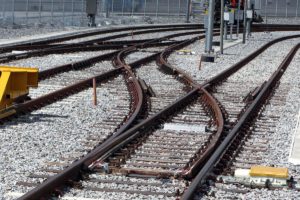 I am sitting in the dark, the temperature is 36 degrees Celsius. I have a radio and an iPad. I’d like to say that I’m on holiday in the tropics, but I’m in my home in the outskirts of a city and the power has been out for a 6 hours now. I’m a Telstra customer, but there is no mobile or landline service – batteries not included in their infrastructure apparently. If I were part of a local generating group I would be cool and communicating. If my group had a similar power failure I would be drawing from other interconnected communities.
I am sitting in the dark, the temperature is 36 degrees Celsius. I have a radio and an iPad. I’d like to say that I’m on holiday in the tropics, but I’m in my home in the outskirts of a city and the power has been out for a 6 hours now. I’m a Telstra customer, but there is no mobile or landline service – batteries not included in their infrastructure apparently. If I were part of a local generating group I would be cool and communicating. If my group had a similar power failure I would be drawing from other interconnected communities.
My question is – who has heard of the 3rd industrial revolution, and has anyone seen a recent advance toward it in Australia?

Switch (courtesy Falk2)
If we have information that can lead to better decisions, can we fail to act? Can we excuse ourselves with “it’s their job”, “not my responsibility”, “I don’t want to be involved”.
Philippa Foot devised a thought experiment in 1967, routinely called the “Trolley Problem”. The experiment involves a train (trolley) heading toward 5 workers. The train is a runaway and all 5 workers will certainly be killed if nothing is done. There is a side track with only one worker and you are in the right place at the right time to make a decision. You can activate the rail switch, diverting the train and resulting in a single certain death. Or not. There is no time to alert the workers, or gain assistance; the train can’t be stopped.
As a tool to teach ethics this particular experiment is deceptively simple, should I sacrifice 1 to save 5? It does however raise numerous questions, “am I obliged to act?”, “do I have a duty?”, “is interfering wrong?” “do I act morally or ethically?”, “do I act for the greater good, the good of the people involved, or for myself?”
This dilemma is very long lived and has captured the imagination of the professionals and public. There are many variations – is it Ok to stop the train by pushing someone in front of it? What if that person was responsible for the runaway train? What if the workers could be saved by sacrificing a bystander, or a loved-one?
When anyone is faced with making a decision at a switch they can make a moral choice, an ethical choice, a popular choice, and when making that choice they can include longer time frames, wider consequences, how the action will make them feel, how others will think of them.
Questions today: When it comes to infrastructure decision making, when our decision takers are standing at the switch, how do we know if we should contribute to the conversation? When would we join in if we do, and with what level of action?

Recent Comments